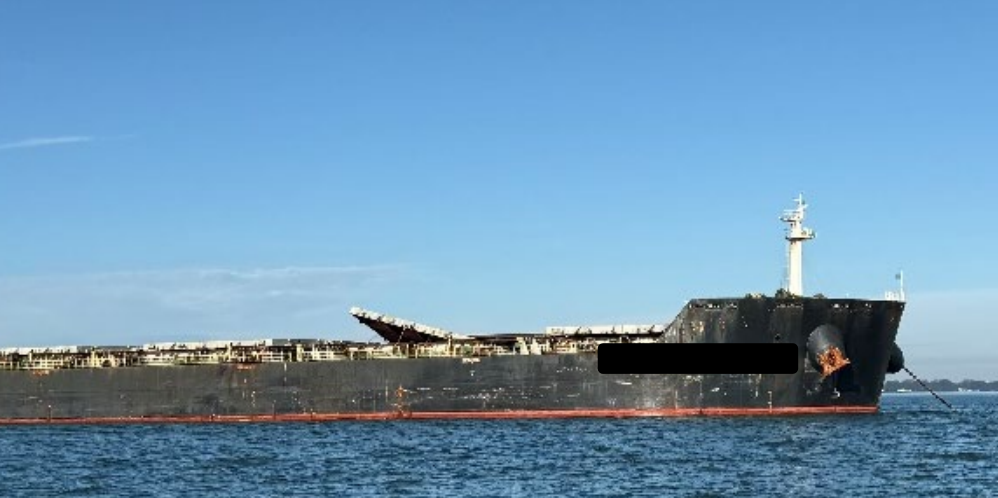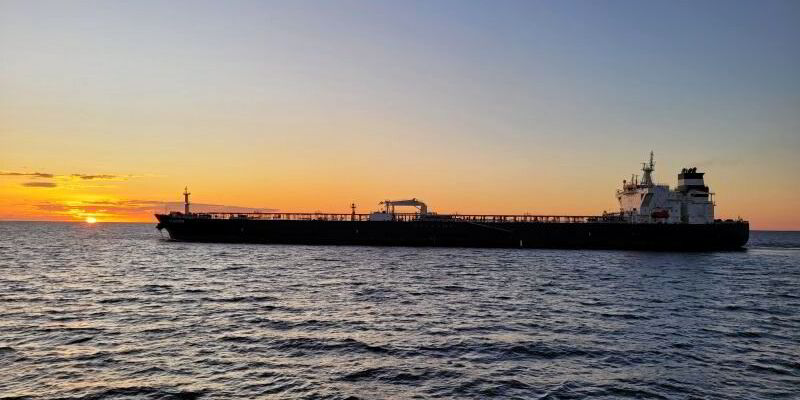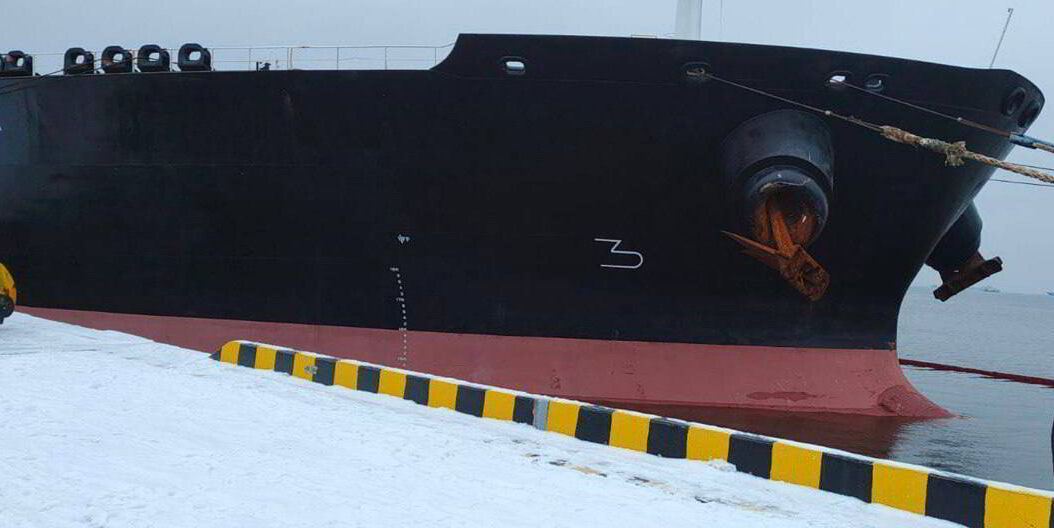The US Coast Guard has issued a warning over the risks of transporting coal after a series of explosions struck a foreign-flagged bulker off the coast of Virginia.
An investigation highlights “critical safety concerns” associated with the cargo type.
The vessel was about 100 miles (160 km) offshore, carrying “Bailey high vol coking coal”, the Coast Guard said.
The blasts took place in two forward holds.
“While still under investigation, the explosions are likely a result of accumulation of methane gas that created an explosive atmosphere and resulted in significant damage to the two associated cargo holds,” it added.
Photographs showed deck and hold damage. The Coast Guard has withheld the name of the ship.
The report said it was soon discovered that the other five cargo holds also had highly elevated levels of methane that were approaching the lower explosive limit.
This presented “an immediate threat to the safety of the mariners and the ship”, it added.
The agency advised that coal needs to be shipped under the standard precautions in the International Maritime Solid Bulk Cargoes Code.
In this case, the Coast Guard noted that the cargo-specific shipping declaration did not meet the standard to disclose this type of coal was liable to produce methane.
Investigators also found that the ventilation of the cargo holds, the atmospheric sampling within the cargo holds, and the trimming of cargo after loading failed to comply with the standards.
The Coast Guard has recommended that owners and seafarers check the cargo-specific shipping declaration is complete by thoroughly addressing the properties and potential hazards of the specific type of coal being shipped.
They are also asked to review and ensure full implementation of conditions of carriage required for shipment of coal by sea as stipulated under the code, the cargo-specific shipping declaration, the vessel’s safety management system and industry best practices.
“Crews should communicate openly with the shipper if the cargo’s behaviour differs from that specified in the cargo declaration at any time during shipboard transit, at the loading facility, or during transit to the facility,” the Coast Guard concluded.(Copyright)





